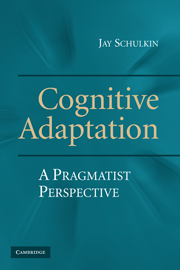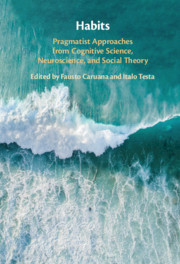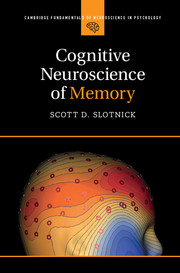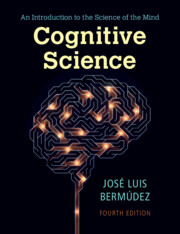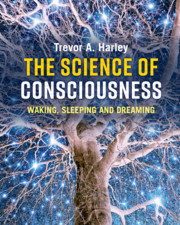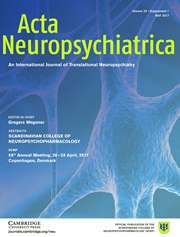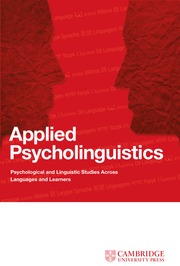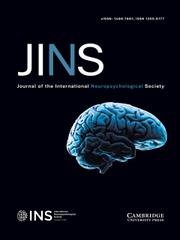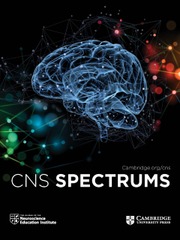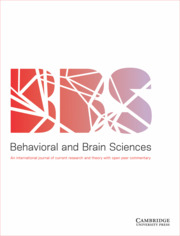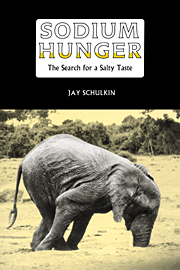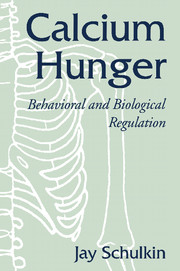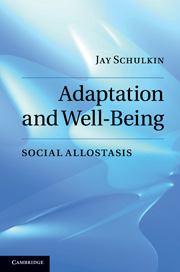Cognitive Adaptation
A Pragmatist Perspective
£100.00
- Author: Jay Schulkin, Georgetown University, Washington DC
- Date Published: December 2008
- availability: Available
- format: Hardback
- isbn: 9780521517911
£
100.00
Hardback
Other available formats:
Paperback, eBook
Looking for an inspection copy?
This title is not currently available on inspection
-
Cognitive Adaptation: A Pragmatist Perspective argues that there is a fundamental link between cognitive/neural systems and evolution that underlies human activity. One important result is that the line between nature and culture and scientific and humanistic inquiry is quite permeable - the two are fairly continuous with each other. Two concepts figure importantly in our human ascent: agency and animacy. The first is the recognition of another person as having beliefs, desires, and a sense of experience. The second term is the recognition of an object as alive, a piece of biology. Both reflect a predilection in our cognitive architecture that is fundamental to an evolving, but fragile, sense of humanity. The book further argues for a regulative norm of self-corrective inquiry, an appreciation of the hypothetical nature of all knowledge. Schulkin's perspective is rooted in contemporary behavioral and cognitive neuroscience.
Read more- Uses investigative approach to demonstrate the line between nature and culture, science and the humanities
- Takes on perspective rooted in psychobiology, contemporary behavioral and cognitive neuroscience and classical pragmatism
- No other work covers the material in this text in a comparable manner
Customer reviews
17th Oct 2024 by UName-317088
Cognitive Adaptation: A Pragmatist Perspective argues that there is a fundamental link between cognitive/neural systems and evolution that underlies human activity. One important result is that the line between nature and culture and scientific and humanistic inquiry is quite permeable - the two are fairly continuous with each other. Two concepts figure importantly in our human ascent: agency and animacy. The first is the recognition of another person as having beliefs, desires, and a sense of experience. The second term is the recognition of an object as alive, a piece of biology. Both reflect a predilection in our cognitive architecture that is fundamental to an evolving, but fragile, sense of humanity. The book further argues for a regulative norm of self-corrective inquiry, an appreciation of the hypothetical nature of all knowledge. Schulkins perspective is rooted in contemporary behavioral and cognitive neuroscience.
Review was not posted due to profanity
×Product details
- Date Published: December 2008
- format: Hardback
- isbn: 9780521517911
- length: 210 pages
- dimensions: 229 x 152 x 16 mm
- weight: 0.45kg
- availability: Available
Table of Contents
1. Cognitive adaptation: objects and inquiry
2. The human situation: uncertainty and adaptation
3. Time and memory: historical sensibilities
4. Education: learning from others, neurogenesis
5. Cognitive and neurobiological basis of religious inquiry.
Sorry, this resource is locked
Please register or sign in to request access. If you are having problems accessing these resources please email [email protected]
Register Sign in» Proceed
You are now leaving the Cambridge University Press website. Your eBook purchase and download will be completed by our partner www.ebooks.com. Please see the permission section of the www.ebooks.com catalogue page for details of the print & copy limits on our eBooks.
Continue ×Are you sure you want to delete your account?
This cannot be undone.
Thank you for your feedback which will help us improve our service.
If you requested a response, we will make sure to get back to you shortly.
×
